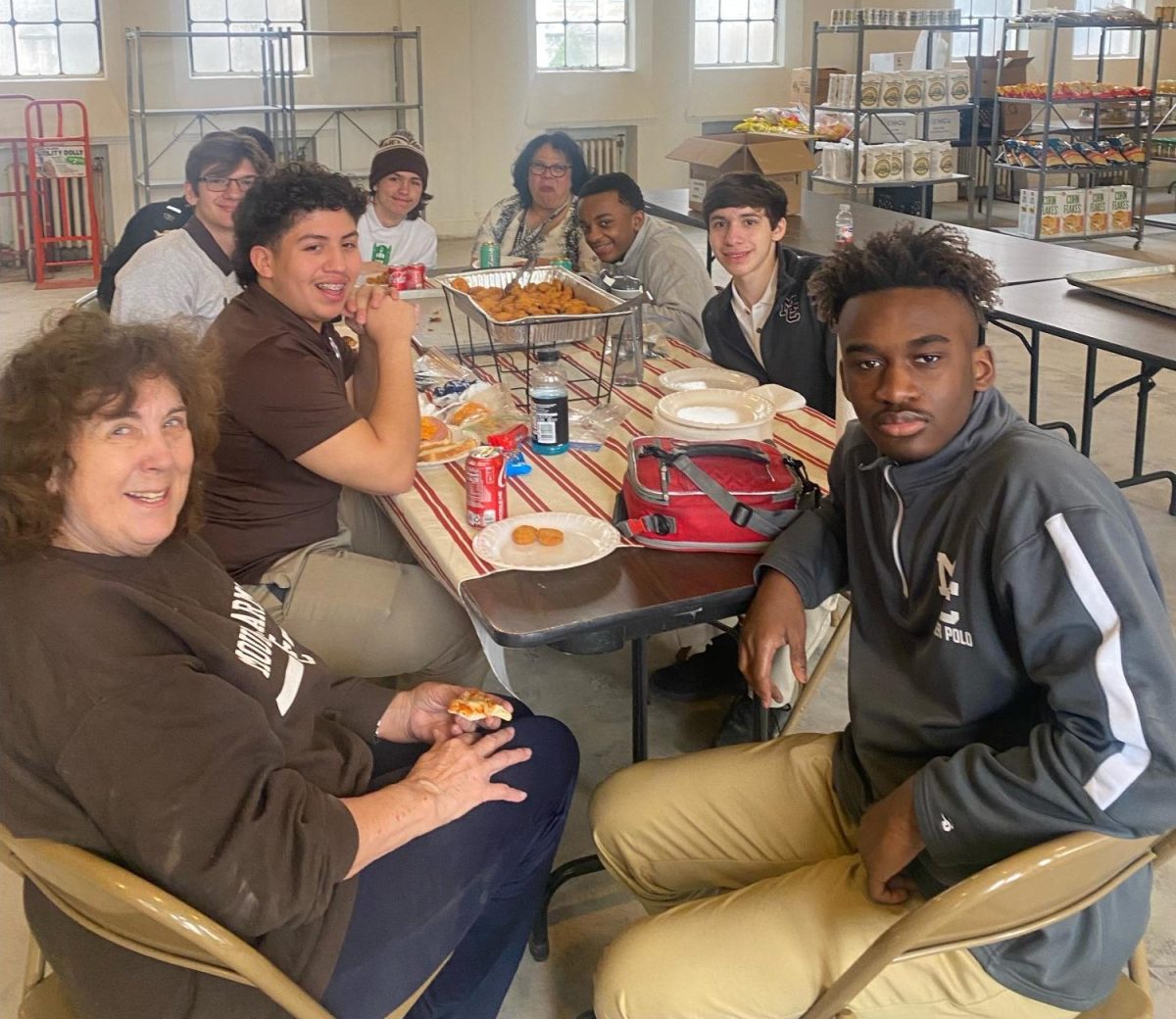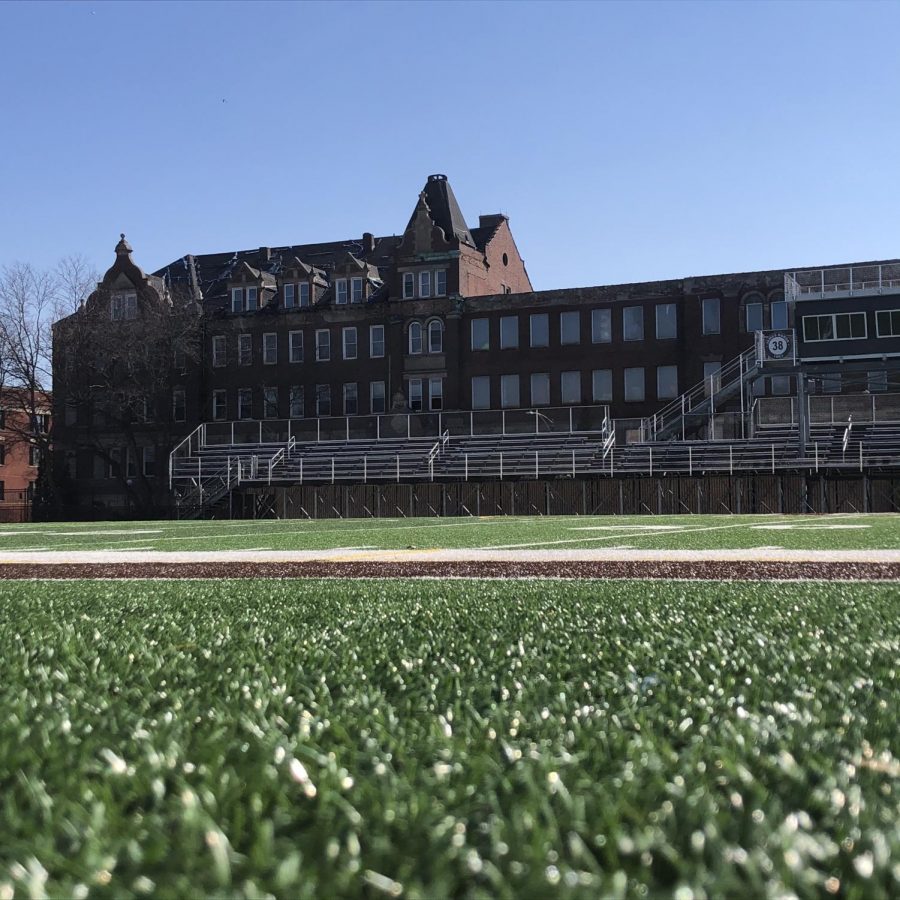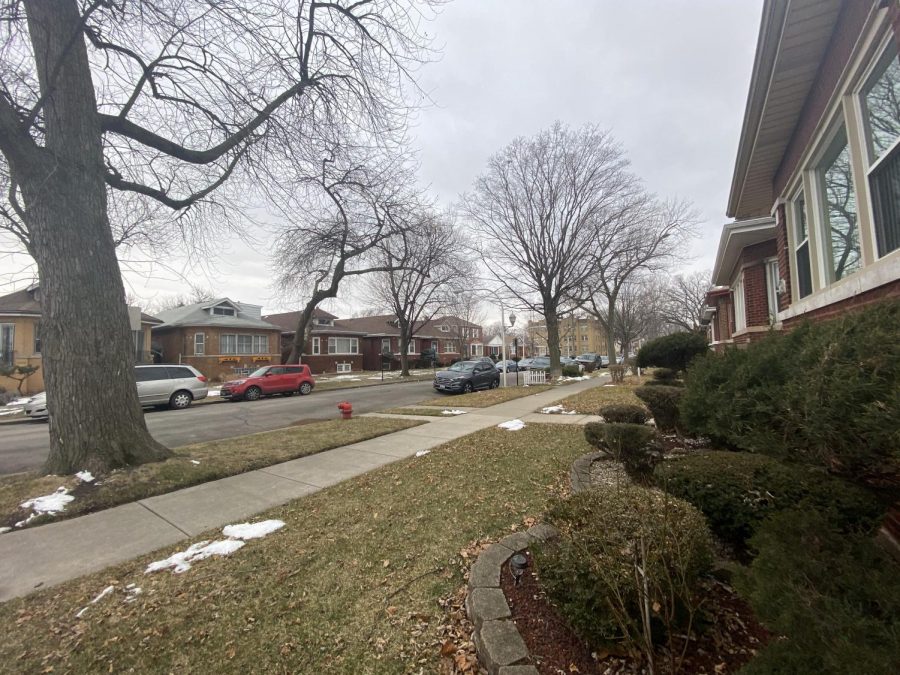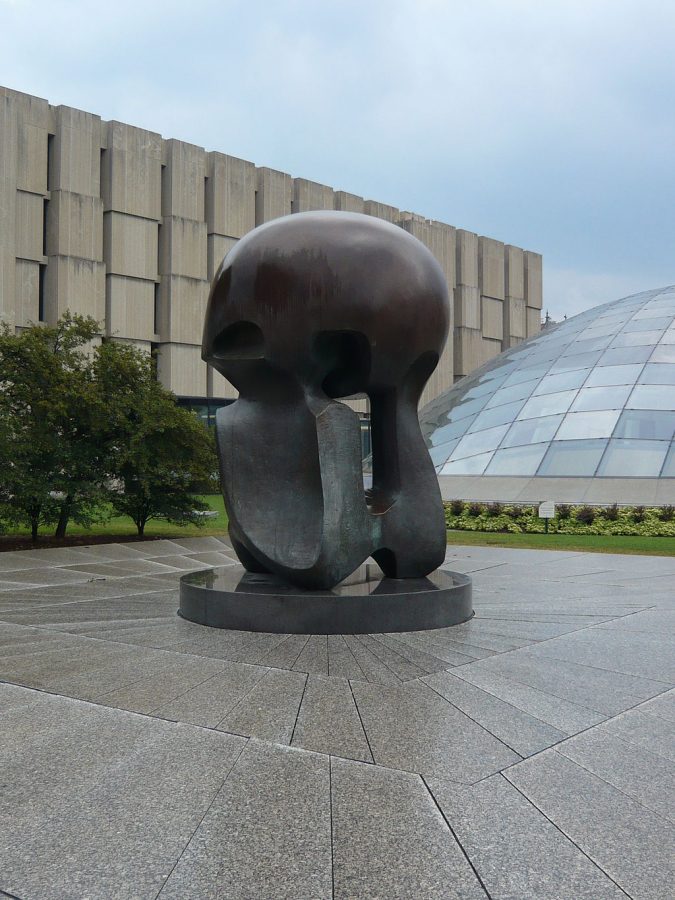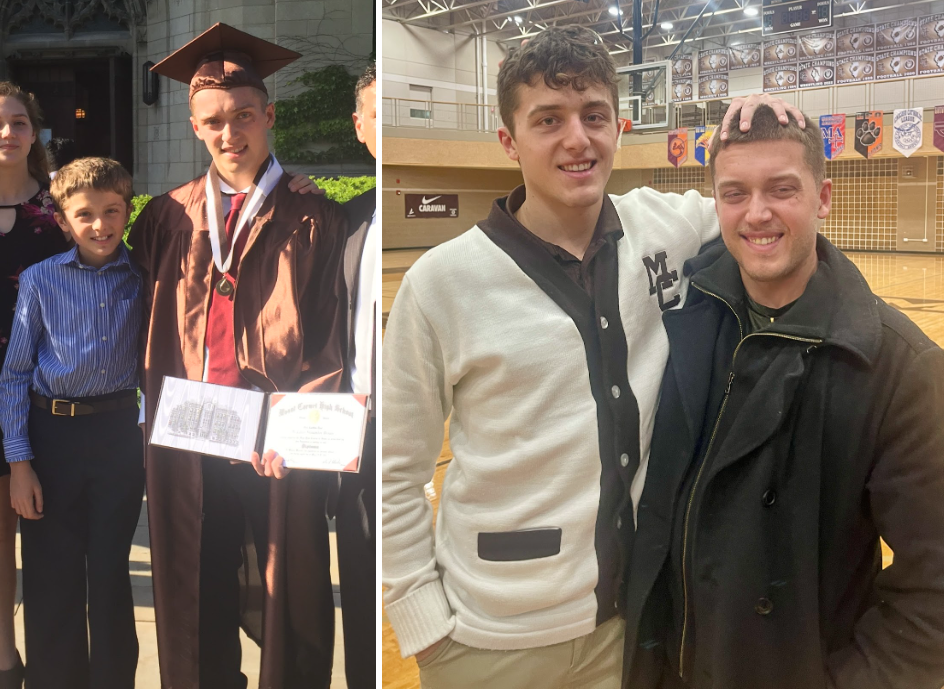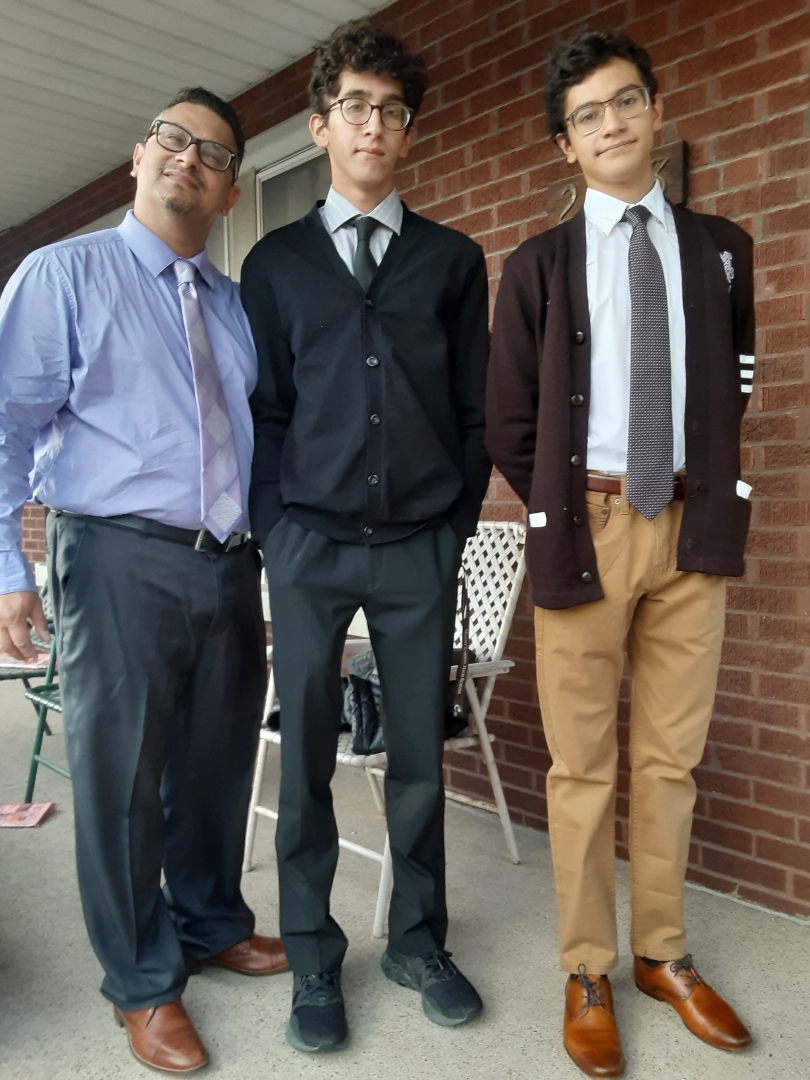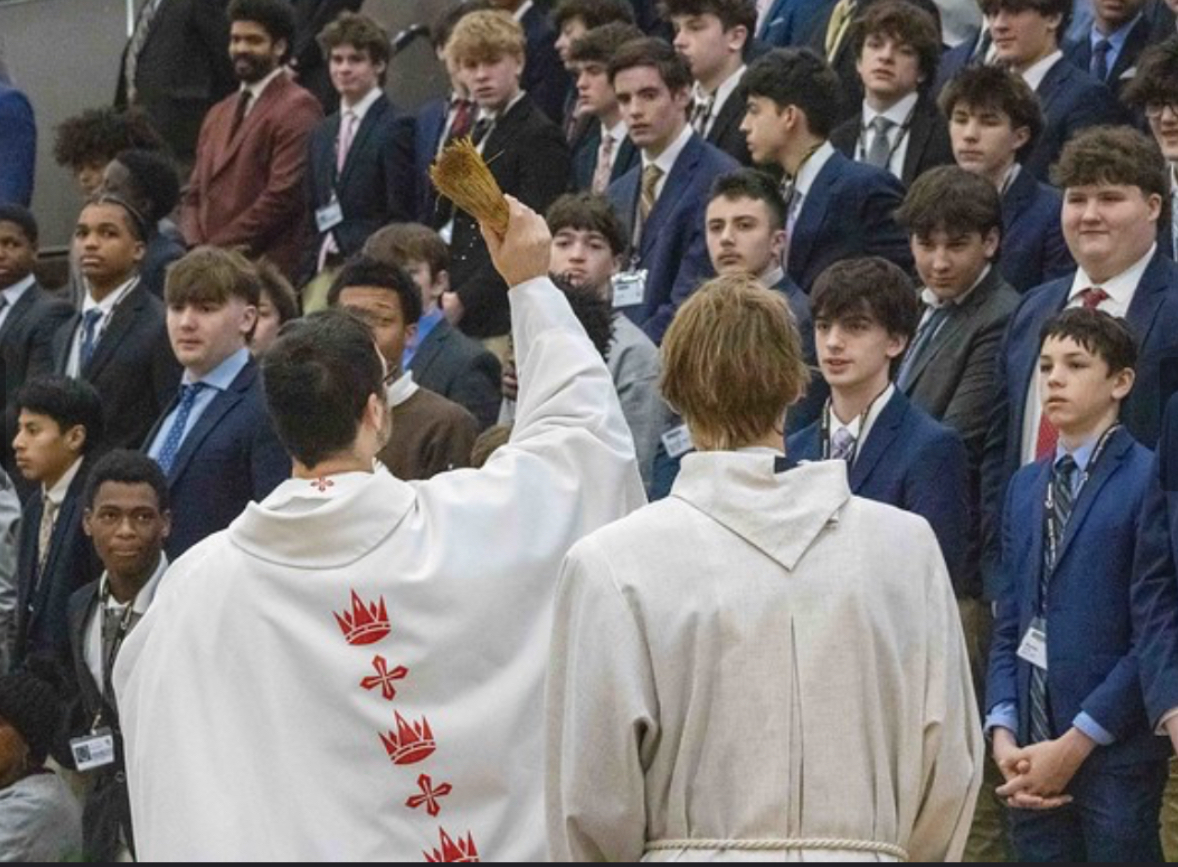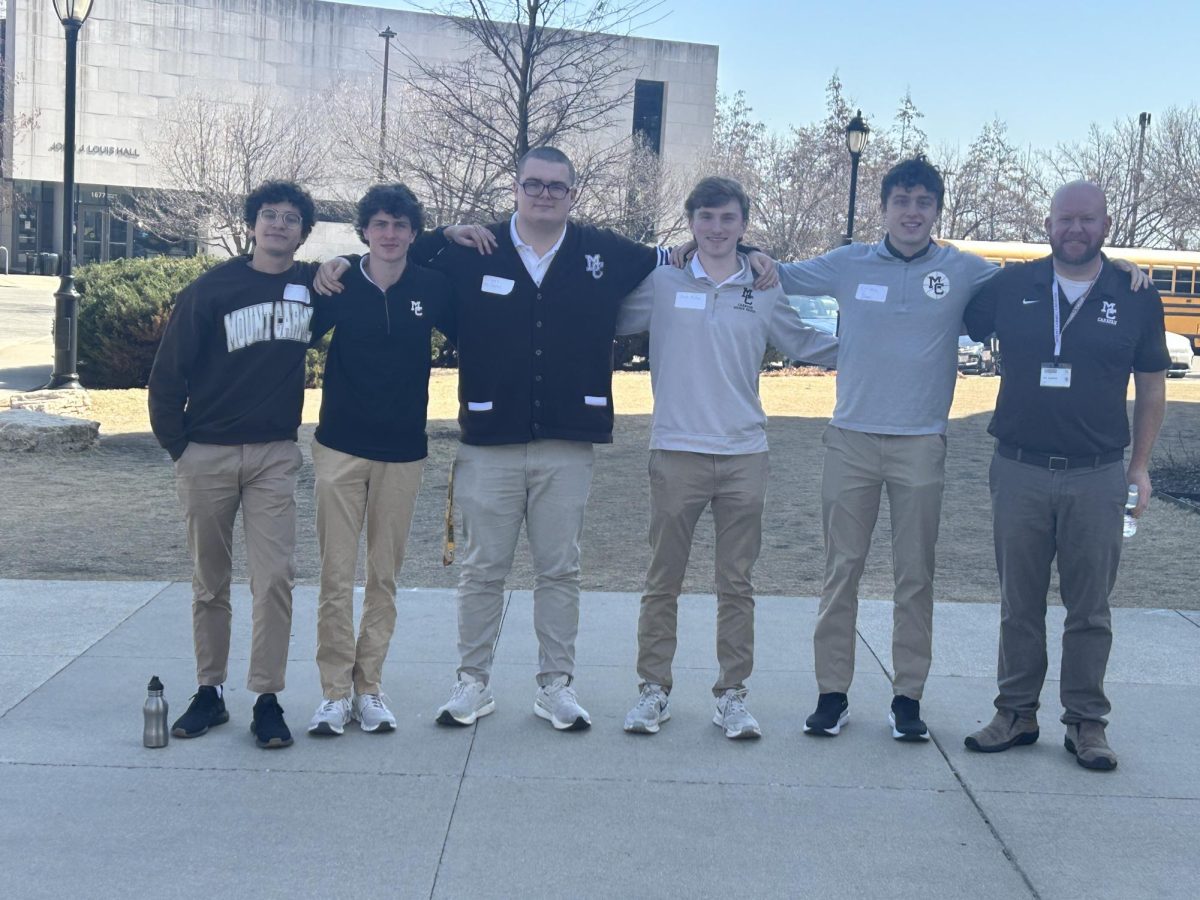Men of Carmel are made inside and outside of the classroom.
Every week, two groups of Mount Carmel sophomores generously volunteer to work at the food pantry inside of the First Presbyterian Church of Chicago just down the street from MC at 6400 S. Kimbark Ave. Recently it’s been referred to as a “food market” because it offers people the dignity to choose what food they want.
The groups dispatched there are intended to do service, which leads to them learning Carmelite values along the way. These values include leading by example, respecting all, and acting with integrity.
Students learn how to lead by example at the food market because they take initiative to join. Their choice to serve is not influenced by teachers. The good deeds of students that take the initiative to sign up often motivates their peers to join as well.
“There is a willingness to go,” Director of Mission and Ministry Mr. John Stimler said. “I hear people in class talk about ‘have you gone yet,’ and ‘you really should go.’ I’ve been impressed with the sophomores encouraging other people to make sure they do it.”
Since the food market has asked for more students to serve recently, the sophomore class readily responded. The willingness that Mr. Stimler mentioned is a large reason for their dedicated participation. Senior Ryan McCormick used to serve at the food pantry monthly as a sophomore.
“No one is making you go,” McCormick said. “People heard about it, so I also told others, and it was a good time.”
Students who serve want to share their positive experience. As their experiences are shared, more students sign up. A positive culture of service is then formed amongst students who choose to go. By showing a desire to serve the community, students lead by example.
In addition to teaching students how to lead by example, they also learn to have respect for all. A common Carmelite belief at MC is that because people are creations of God, they inherently warrant dignity.
“That is the principle of all human dignity,” Carmelite Intern Br. Pedro Mira says. “We see human faces, but we know that behind the face is Jesus, who abides in one person.”
One of the ways students respet the dignity of those visiting the food market is by acknowledging their right to freedom of choice.
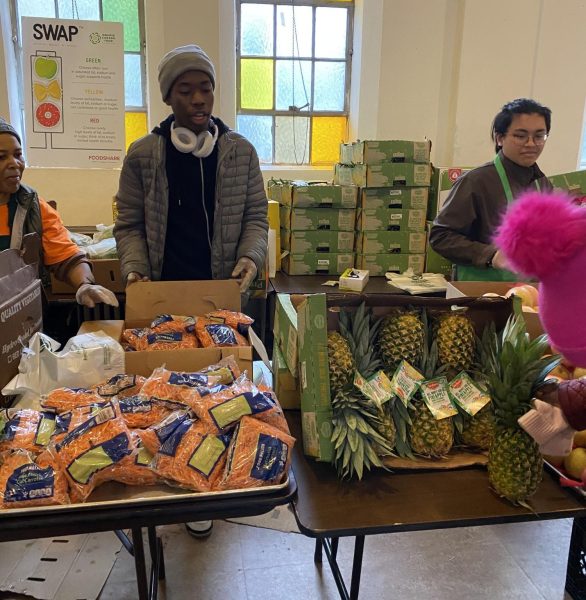
“People get to come in and choose, ‘what do I want’ and ‘what do I not want,’” Mr. Stimler said. “They [the students] see that there’s some human interaction on a personal level that teaches them to be kind and considerate and polite to people regardless of whatever their situation in life is.”
Through helping visitors and respecting their dignity, students learn to respect all.
Another Carmelite value students learn at the food market is to act with integrity. On Wednesdays, students raise shelves, lift food to those shelves, and then set up tables for Thursday. On Thursdays, students help people during their visit by distributing products. This is hard work because of how involved it can be, but part of building integrity is knowing to respond when needed.
“We are working in integrity because they are able, they are capable to respond,” Br. Mira said. “[To the students] it does not matter what work they go do.”
Integrity is built in the acceptance of hard work, but it is also built from reflection. Now that McCormick is a senior, he has had enough experience to reflect on his time serving the food market.
“You do something good for somebody else, I like to think it comes back to you in a positive way,” McCormick said. “I think I can see myself doing something like that again.”
The defining feature that a public education cannot offer is the teaching of Carmelite values. Values like leading by example, respecting all, and acting with integrity are specific to a Carmelite education. Sometimes these values need to be taught beyond the classroom, which is why service at the food market makes for the perfect place to teach students.
A classroom teacher himself, Mr. Stimler sees the value of service at the food market going beyond the walls of MC.
“It’s that type of lived personal experience that oftentimes shapes us more than what we learn from class.”

